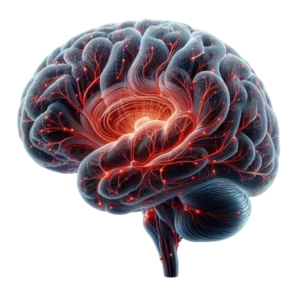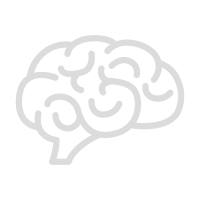


Neurology : An Academic and Medical Overview of
Introduction
Neurology is a specialized branch of medicine that focuses on the diagnosis treatment and management of disorders affecting the nervous system The nervous system comprises the central nervous system CNS which includes the brain and spinal cord and the peripheral nervous system PNS which consists of nerves extending throughout the body.
Neurological disorders can affect motor function sensory perception cognition and autonomic regulation significantly impacting a patient’s quality of life.

Anatomy and Physiology of the Nervous System
The nervous system is a complex network responsible for transmitting signals between different parts of the body It consists of two main divisions.
Central Nervous System CNS Includes the brain and spinal cord processing information and coordinating bodily functions Peripheral Nervous System PNS Consists of cranial and spinal nerves that connect the CNS to the rest of the body allowing communication between the brain spinal cord and organs.

Common Neurological Disorders
Neurological disorders vary widely in terms of their causes symptoms and severity Some of the most prevalent conditions include
- Alzheimers Disease : A progressive neurodegenerative disorder affecting memory cognition and behavior
- Parkinsons Disease : A movement disorder caused by the degeneration of dopaminergic neurons in the brain leading to tremors rigidity and bradykinesia
- Epilepsy : A chronic neurological disorder characterized by recurrent seizures due to abnormal electrical activity in the brain
- Stroke : A sudden disruption of blood supply to the brain which can lead to paralysis speech impairment and cognitive dysfunction
- Multiple Sclerosis MS : An autoimmune disease affecting the myelin sheath of nerves causing muscle weakness vision problems and fatigue
- Migraine : A neurological disorder involving severe headaches often accompanied by nausea light sensitivity and visual disturbances

Diagnosis of Neurological Disorders
Neurologists use various diagnostic techniques to identify neurological conditions Common methods include
- Clinical Examination: Assessing a patient’s medical history symptoms and neurological function including reflexes muscle strength and coordination
- Imaging Studies : MRI and CT scans provide detailed images of the brain and spinal cord helping detect structural abnormalities
- Electroencephalogram EEG : Measures electrical activity in the brain to diagnose epilepsy and other disorders
- Lumbar Puncture : Also known as a spinal tap this test analyzes cerebrospinal fluid CSF to detect infections inflammation or neurological diseases
- Genetic Testing : Identifies inherited neurological conditions such as Huntingtons disease

Treatment and Management of Neurological and Lifestyle Disorders
Treatment options for neurological disorders depend on the underlying cause severity and patient specific factors Common approaches include
- Medications Neurological conditions are often treated with medications including Antiepileptics for seizure control
- Dopamine agonists for Parkinsons disease
- Immunomodulators for multiple sclerosis
- Physical and Occupational Therapy Helps patients regain mobility coordination and daily functionality after neurological damage
- Surgical Interventions Procedures such as deep brain stimulation for Parkinsons disease or clot removal in stroke patients
- Lifestyle Modifications Managing stress maintaining a healthy diet regular exercise and cognitive therapies to support brain health
- Rehabilitation Programs Structured rehabilitation for stroke or spinal cord injury patients to enhance recovery and independence
Conclusion
Neurology is a vital field of medicine that addresses a wide range of disorders affecting the nervous system Advances in medical technology and research have significantly improved the diagnosis and treatment of neurological conditions enhancing patient outcomes Ongoing research continues to explore innovative therapies including gene therapy neurostimulation and regenerative medicine to further improve neurological health
